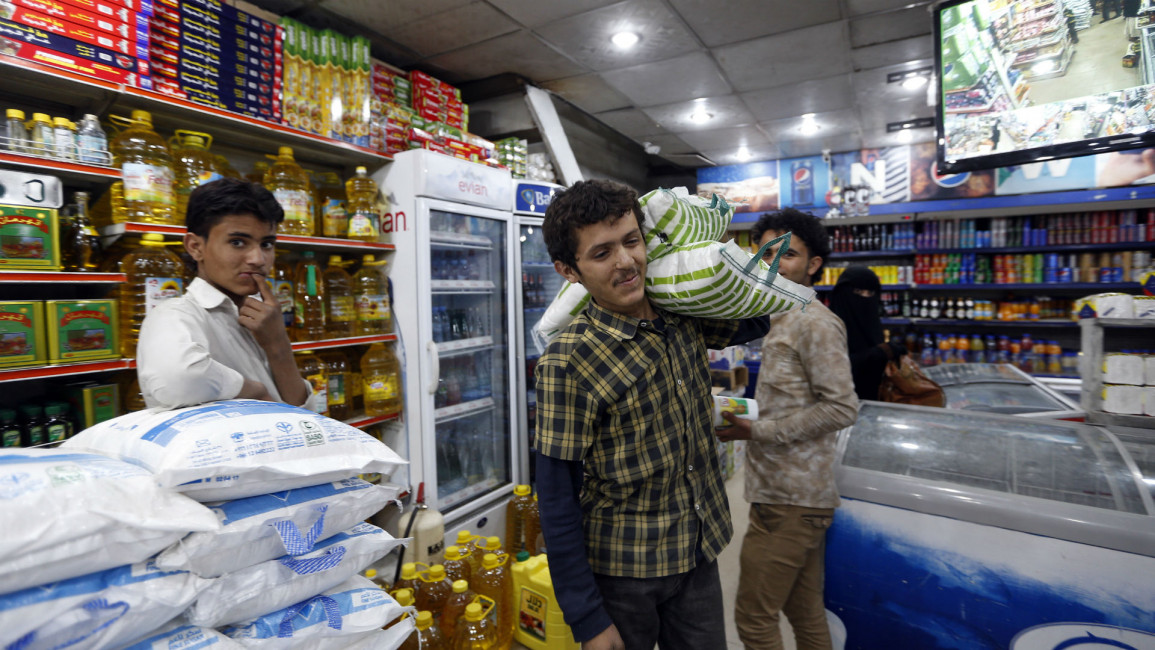Currency rise raises hopes in war-torn Yemen
A sharp rise in the currency of war-torn Yemen on Thursday following a $2-billion Saudi bailout sparked hope of relief for millions at risk of famine and reliant on imported food.
For more than a year, the government has been unable to pay salaries and the riyal has more than halved in value against the dollar, leaving Yemenis unable to afford food staples and bottled water.
But after Saudi Arabia announced a massive cash injection in the central bank, the Yemeni currency rose 16 percent against the dollar on Thursday.
Riyadh's decision Wednesday to transfer $2 billion to the central bank to boost the riyal followed a desperate plea for help by Yemen's president and prime minister.
"As the value of the riyal goes up, the living conditions of Yemeni citizens will change for the better," the Saudi information ministry said.
Yemen's riyal stood at 215 to the dollar in early 2015.
After Saudi Arabia, the United Arab Emirates and other Arab allies entered the fight against the Iran-backed Houthi rebels in March of that year, the riyal began to plummet, dropping to 500 against the dollar by 2018.
Money changers across the country - including in the rebel-held capital Sanaa and the government bastion of Aden - reported the dollar trading at between 420 and 450 riyals on Thursday.
The Saudi-backed government has now capped the exchange rate against the dollar at 390 riyals, but money changers across the country appeared to have turned a blind eye.
More than one million civil servants lost their jobs in 2016, when President Abedrabbo Mansour Hadi transferred the central bank from Sanaa to his hometown of Aden.
The rebels still operate their own central bank from the capital.
Saudi Arabia, which itself faces a hefty budget deficit, on Thursday sent its ambassador Mohammed al-Jaber to Aden, three years after he fled Yemen as the Huthis overran the capital.
Prime Minister Ahmed bin Dagher, receiving the ambassador, thanked the kingdom and asked Riyadh and Abu Dhabi to send experts to audit the funds transfer, the loyalist news agency Saba reported.
Crippling blockade
Late last year, the Saudi-led campaign imposed a blockade on Yemeni ports and airports in response to a missile fired by the Houthis that was intercepted near Riyadh airport.
Despite easing up since, the situation remains dire.
"The continuing blockade of ports is limiting supplies of fuel, food and medicines; dramatically increasing the number of vulnerable people who need help," said Jamie McGoldrick, the UN humanitarian coordinator for Yemen.
"The lives of millions of people, including 8.4 million Yemenis who are a step away from famine, hinge on our ability to continue our operations and to provide health, safe water, food, shelter and nutrition support," he added.
The UN's World Food Programme has previously declared that food is being used as a weapon of war in Yemen.
An investigation covered by The Guardian found that Saudi Arabia is targeting Yemen's food supplies. Coupled with the harsh restrictions imposed on the imports, the siege tactics have resulted in the collective punishment of the population, it said.
The Yemen conflict has left more than three-quarters of the population in need of humanitarian aid and 8.4 million at risk of famine, according to the United Nations. More than 10,000 people, mainly civilians, have been killed, while over 50,000 have been wounded and millions have been displaced from their homes.



